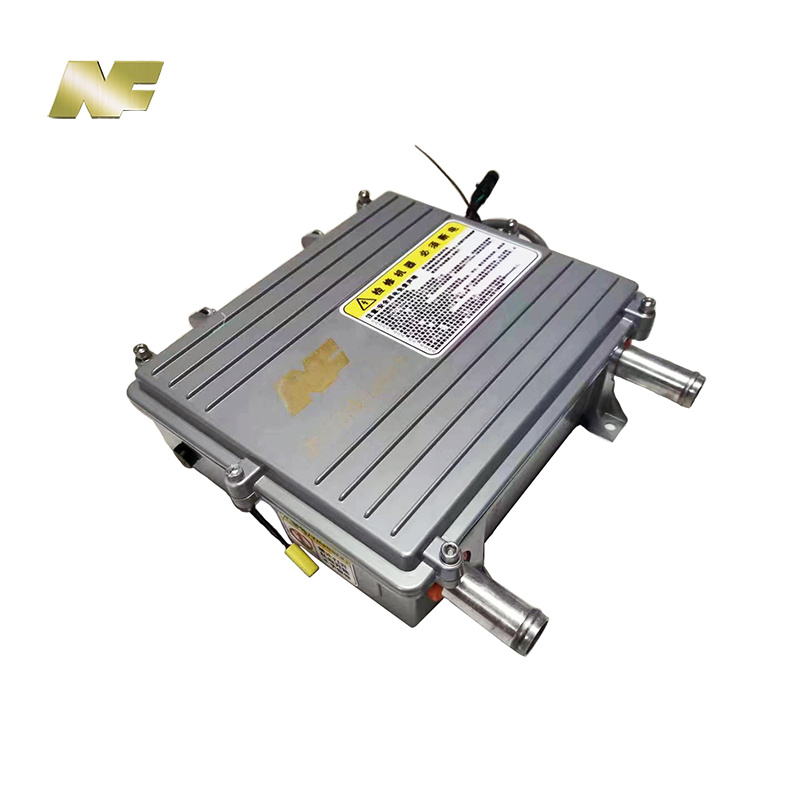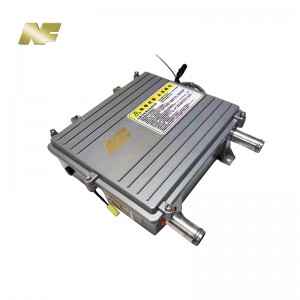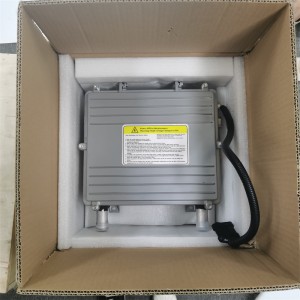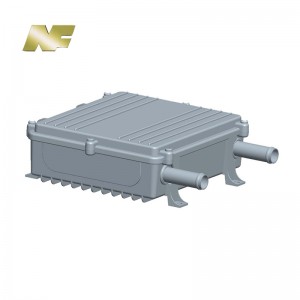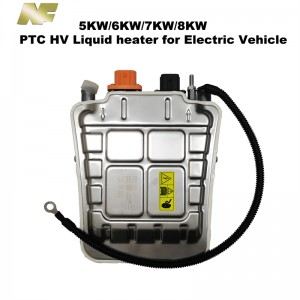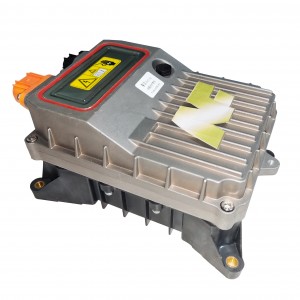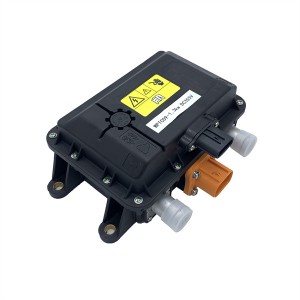30KW Electric Coolant Heater New Electric Water Heater For Electric Vehicle
Technical Parameter
| NO. | Product Description | Range | Unit |
| 1 | Power | 30KW@50L/min &40℃ | KW |
| 2 | Flow Resistance | <15 | KPA |
| 3 | Burst Pressure | 1.2 | MPA |
| 4 | Storage Temperature | -40~85 | ℃ |
| 5 | Operating Ambient Temperature | -40~85 | ℃ |
| 6 | Voltage Range (high Voltage) | 600(400~900) | V |
| 7 | Voltage Range (low Voltage) | 24(16-36) | V |
| 8 | Relative Humidity | 5~95% | % |
| 9 | Impulse Current | ≤ 55A (i.e. rated current) | A |
| 10 | Flow | 50L/min | |
| 11 | Leakage Current | 3850VDC/10mA/10s without breakdown, flashover, etc | mA |
| 12 | Insulation Resistance | 1000VDC/1000MΩ/10s | MΩ |
| 13 | Weight | <10 | KG |
| 14 | IP Protection | IP67 | |
| 15 | Dry Burning Resistance (heater) | >1000h | h |
| 16 | Power Regulation | regulation in steps | |
| 17 | Volume | 365*313*123 |
Description
Electric vehicles are revolutionizing the automotive industry, with electric buses becoming increasingly popular due to their sustainability and efficiency. However, these buses face unique challenges, such as maintaining optimal battery performance and ensuring passenger comfort in cold climates. One solution to these challenges is to use high-voltage PTC heaters designed specifically for electric bus applications.
PTC (Positive Temperature Coefficient) heaters are advanced heating systems that utilize PTC materials to efficiently generate heat. These heaters are specifically designed to meet the requirements of electric vehicles, including electric buses, and play a vital role in battery management and passenger comfort.
One of the key functions of high-voltage PTC heaters in electric buses is to maintain the optimal operating temperature of the bus battery pack. Batteries perform best within a specific temperature range, and being too cold or too hot can significantly affect their efficiency and lifespan. To ensure battery life and prevent capacity loss, a high voltage coolant heater is installed to regulate the temperature of the battery pack. These heaters use excess energy from the battery to heat the coolant, which is then circulated through the battery pack, providing an efficient and environmentally friendly solution to battery thermal management.
In addition, high voltage PTC heaters also play a vital role in ensuring the comfort of passengers in the passenger car compartment. Electric buses must provide a comfortable environment for passengers regardless of external weather conditions. By utilizing advanced PTC heating technology, the electric bus heater can quickly heat the cabin even in extremely cold weather. The self-regulating properties of PTC material prevent overheating, making it safe and reliable in heating applications.
Shipping and Packaging

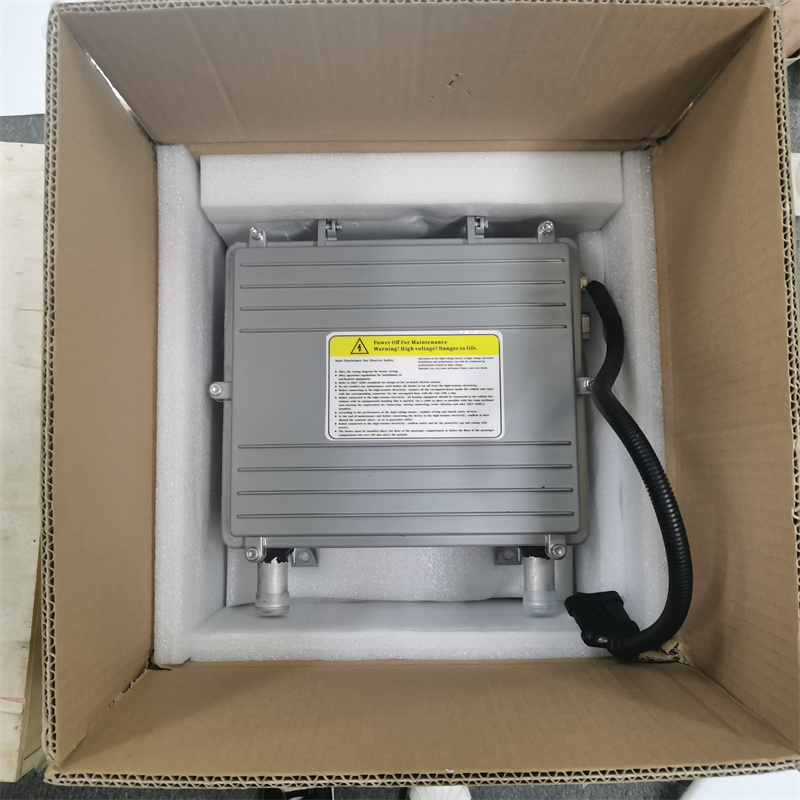
Benefits Of High Voltage PTC Heaters
Some of the key benefits of high voltage PTC heaters for electric buses include:
1. Energy Efficiency: High-pressure PTC heaters are designed to operate efficiently, ensuring minimal energy consumption while delivering optimal performance. This energy-saving feature helps maximize the driving range of electric buses.
2. Rapid heating: PTC material has unique rapid heating ability. Electric bus heaters equipped with high-voltage PTC elements can quickly heat the cabin, ensuring passenger comfort within minutes.
3. Temperature control: PTC heater provides excellent temperature control to avoid overheating. This helps maintain a consistent, comfortable environment within the electric bus while preventing any potential safety hazards.
4. Durability and Reliability: High-voltage PTC heaters are designed to withstand the harsh conditions of electric bus applications. They are durable, ensuring reliable performance and minimal maintenance requirements.
In summary, high-voltage PTC heaters are an important component of electric buses and serve a variety of purposes - from battery thermal management to passenger comfort. These heaters provide energy-efficient, fast and precise heating capabilities, ensuring optimal performance and enhancing the driving experience for drivers and passengers. As the world moves toward cleaner, greener transportation solutions, high-voltage PTC heaters will play a vital role in shaping the future of electric buses.
Our Company
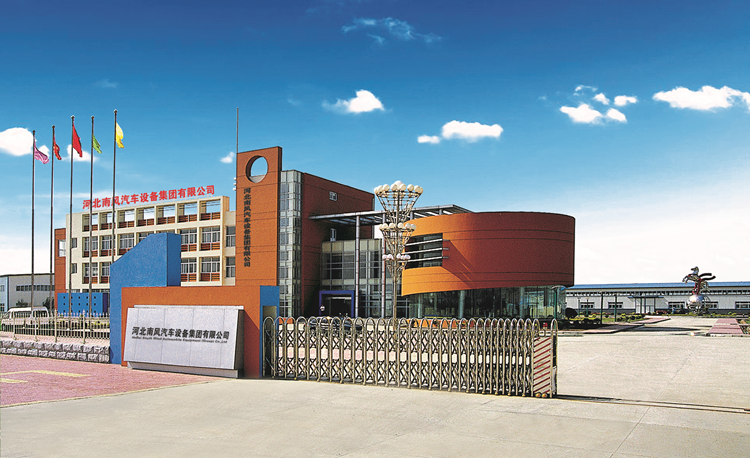
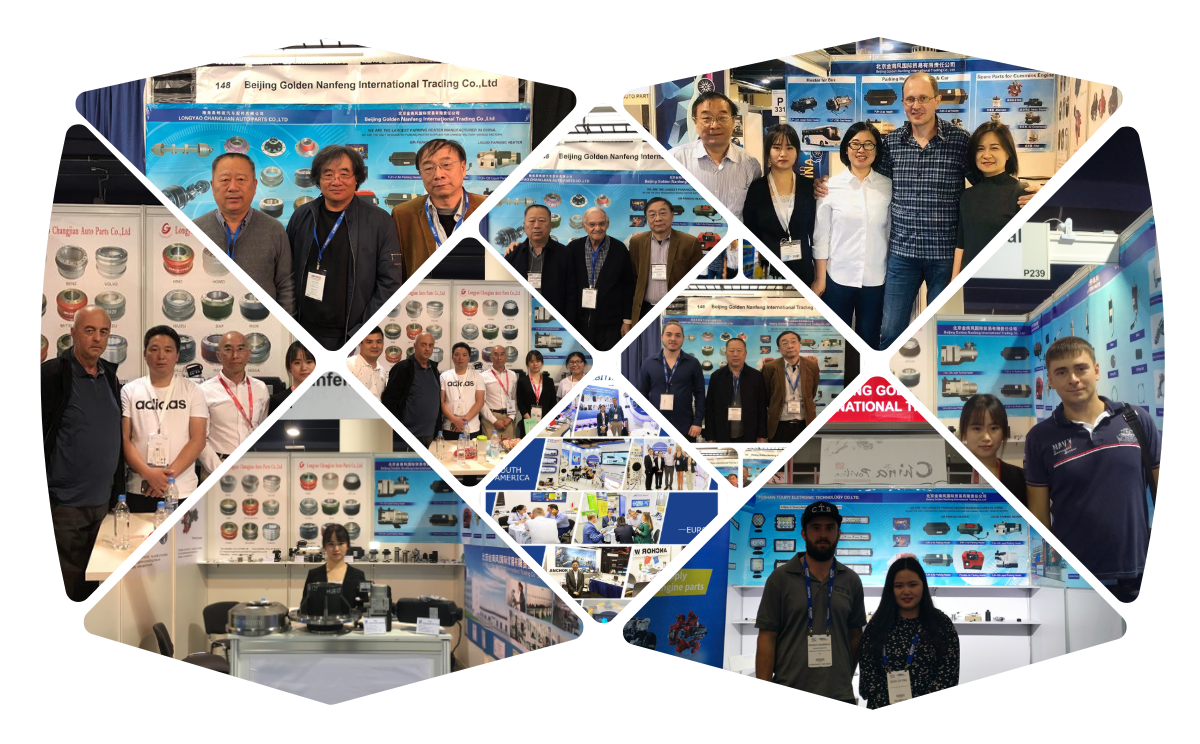
Hebei Nanfeng Automobile Equipment (Group) Co., Ltd is a group company with 5 factories, that specially produce parking heaters, heater parts, air conditioner and electric vehicle parts for more than 30 years. We are the leading auto parts manufacturers in China.
Our factory's production units are equipped with high tech machineries, strict quality,control testing devices and a team of professional technicians and engineers endorsing the quality and authenticity of our products.
In 2006, our company has passed ISO/TS16949:2002 quality management system certification. We also bagged the CE certificate and Emark certificate making us among the only few companies in the world acquiring such high level certifications. Currently being the largest stakeholders in China, we hold a domestic market share of 40% and then we export them around the globe particularly in Asia, Europe and Americas.
Meeting the standards and demands of our customers have always been our top priority. It always encourages our experts to continuously brain storm, innovate, design and manufacture new products, impeccably suitable for the Chinese market and our customers from every nook of the world.
FAQ
Battery electric heaters are an efficient portable heating solution that utilizes battery power to provide warmth in a variety of settings. Despite their increasing popularity, there are often issues surrounding their use. In this article, we have compiled ten frequently asked questions about electric battery heaters and provided detailed answers to help you better understand their features and benefits.
1. What is the working principle of battery electric heater?
Battery electric heaters work by using a heating element to convert the electrical energy of the battery into heat. The heat is then dissipated via a fan or radiant heating technology, effectively warming the surrounding area.
2. What types of batteries are battery electric heaters compatible with?
Most battery electric heaters are designed to work with rechargeable lithium-ion batteries. These batteries have high energy density, longer runtime and faster recharging capabilities, making them ideal for these heaters.
3. How long can the battery of a battery heater last?
Battery life for battery electric heaters varies depending on heat settings, battery capacity and usage patterns. On average, battery electric heaters can provide heat for several hours to a day on a single charge.
4. Can the battery electric heater use ordinary AA or AAA batteries?
No, battery electric heaters require specially designed lithium-ion batteries for optimum performance. Regular AA or AAA batteries do not have the energy needed to effectively power these heaters.
5. Is the battery electric heater safe to use?
Yes, battery electric heaters are generally safe to use. They have built-in safety measures such as overheating protection and automatic shutdown in case of any malfunction or dangerous temperature levels.
6. Are battery electric heaters a cost effective heating solution?
Depending on your heating needs and preferences, battery electric heaters may be cost-effective. They tend to be more energy efficient than traditional propane heaters, but can be more expensive overall due to the need to purchase rechargeable batteries.
7. Can the battery heater be used outdoors?
Yes, battery electric heaters can be used outdoors, especially the weatherproof models. However, it is important to consider heating capacity and battery life to ensure adequate warmth in the open air.
8. What are the advantages of using a battery heater?
Some advantages of battery electric heaters include portability, quiet operation, emission-free heating, and the ability to use them in areas without electrical outlets. They are an excellent choice for camping, emergencies, or spaces where traditional heating methods are not feasible.
9. Are battery heaters suitable for large spaces?
Battery electric heaters are generally designed to provide localized or supplemental heating. They may not be the most efficient option for heating large spaces, as heat distribution may be limited. However, some models offer adjustable airflow or oscillation for enhanced thermal cycling.
10. Can the battery electric heater be used when the power is off?
Yes, battery electric heaters are very useful during a power outage because they rely on the energy stored in the battery. These heaters provide heat and comfort without the need for electrical outlets or generators.
in conclusion:
Battery electric heaters provide a convenient and environmentally friendly way to warm small spaces or provide extra heat in a variety of situations. By addressing these common questions, we hope to give you a better understanding of how battery electric heaters work, their benefits, and limitations, enabling you to make an informed decision when considering this heating solution.

